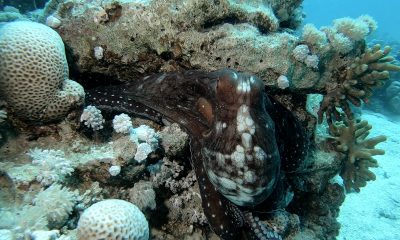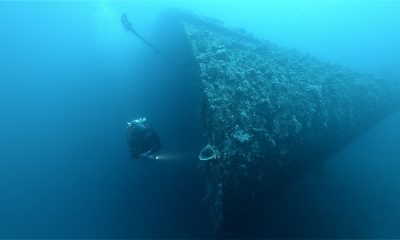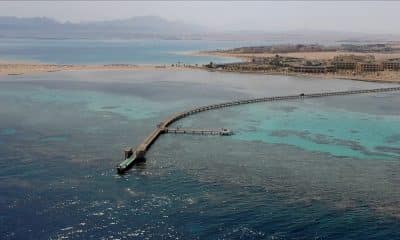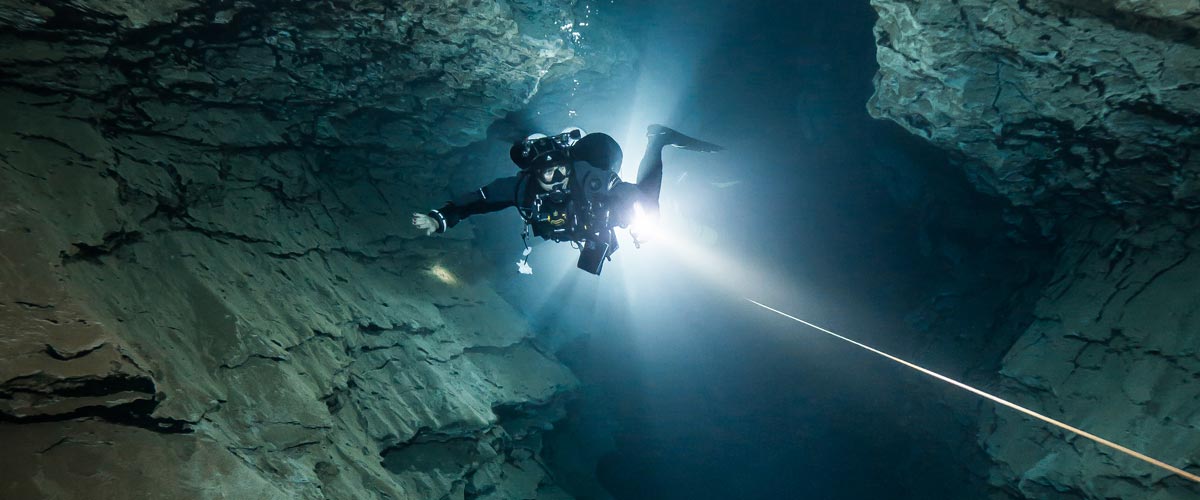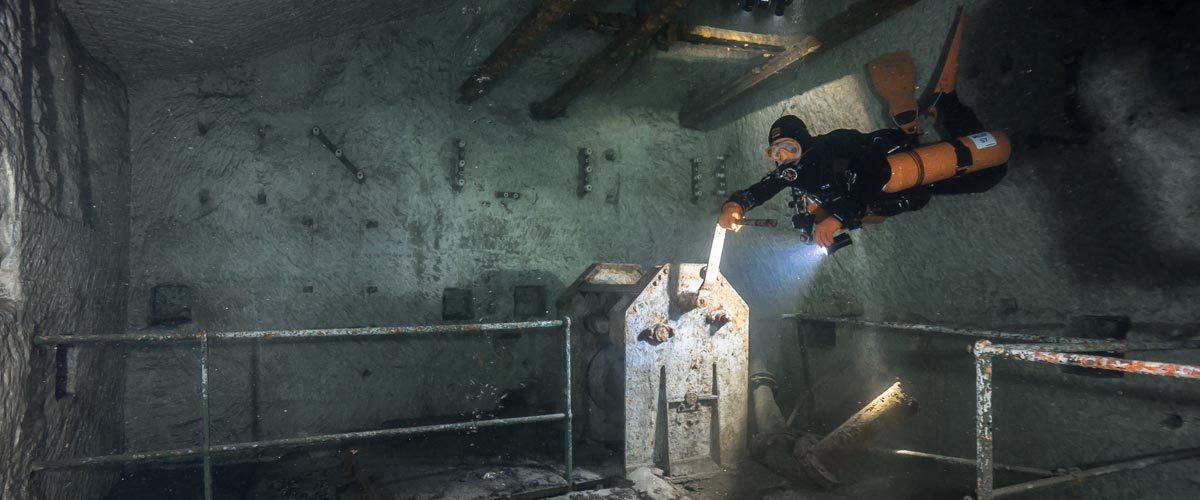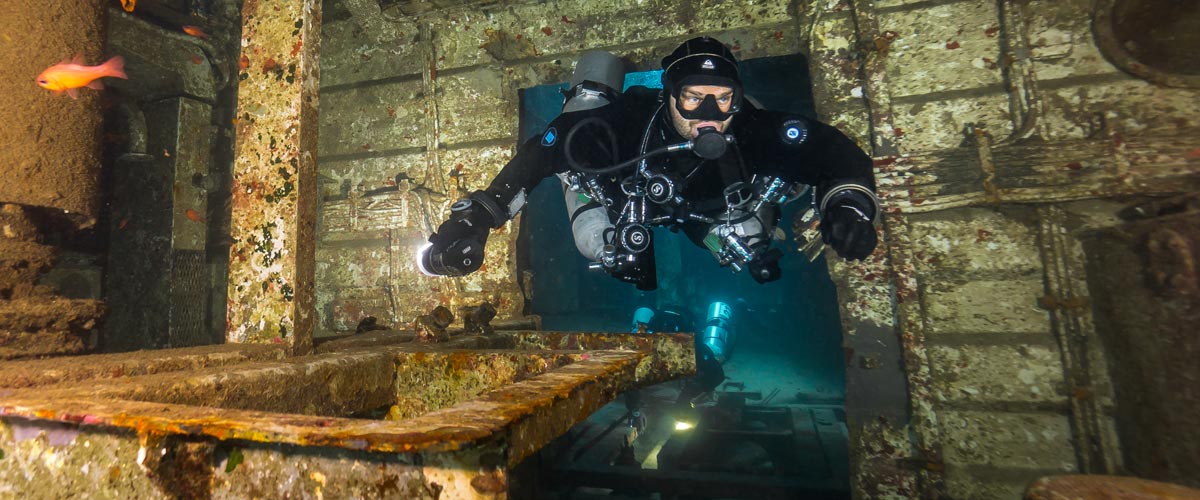Dive Training Blogs
Ten Sensational Spots to Snorkel or Learn to Dive!
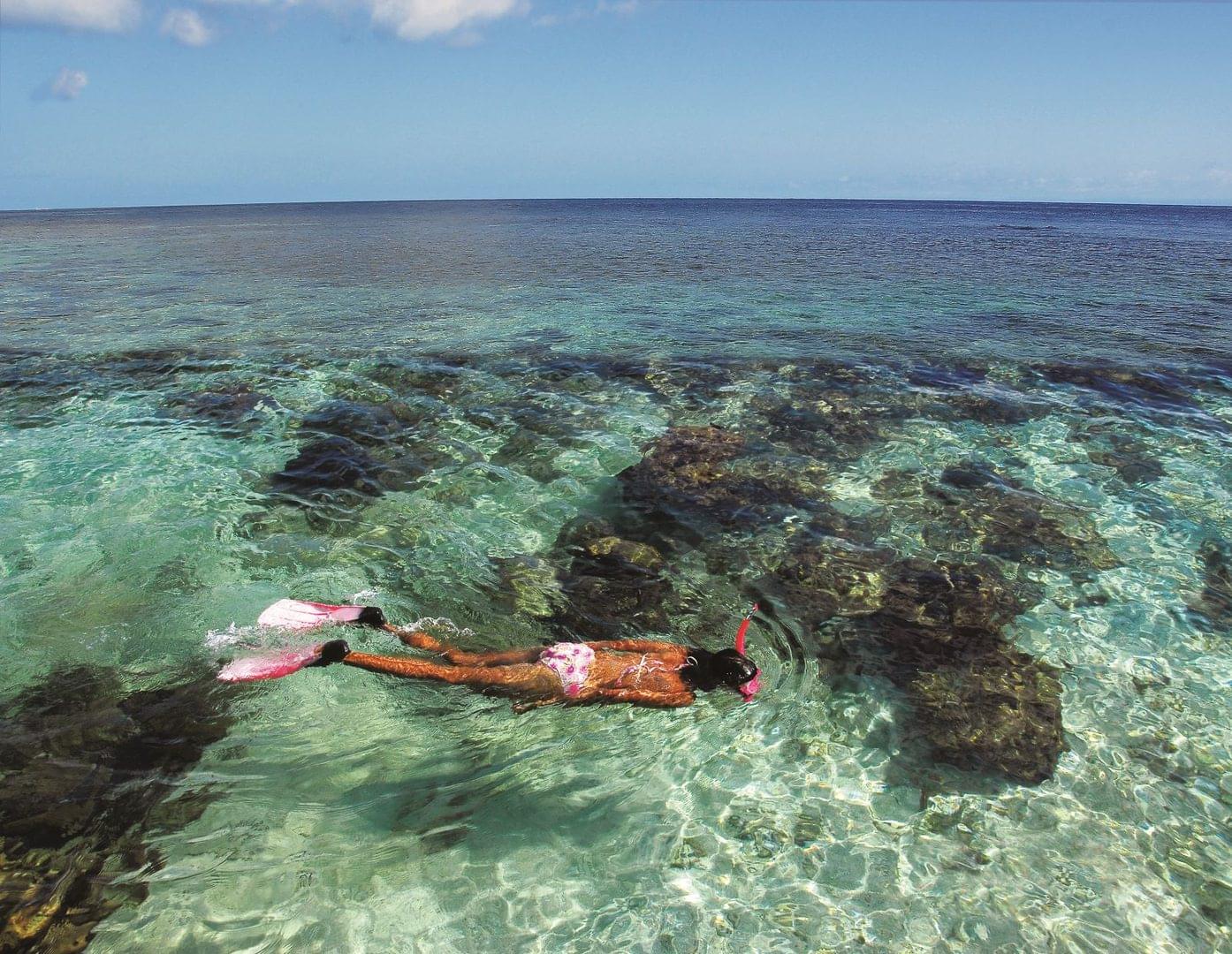
A guest blog by PADI
Snorkeling has long been a beloved way to explore the underwater world. With vibrant coral gardens, large schools of fish and a vast underwater topography to explore, snorkel excursions are a great way to experience both your own backyard and create memorable holiday memories to last a lifetime.
But often these sensational snorkel spots are an equally a great place to make your first ocean dives. Whether you participate in a PADI Discover Scuba Diving experience or take the PADI Open Water Diver course to become a certified diver, you’ll be guided by a trained PADI® Professional who will be looking out for you the entire time as you take your first breaths under the ocean. This experience allows you to have an intimate connection with the location you are exploring as, oftentimes, you will have the opportunity to see even more marine life than you would from the surface of the water.
To help you plan your next ocean adventure— whether it be down the road or on your next overseas adventure (whenever that may be!) —we have rounded up ten sensational spots where you can both snorkel and learn to scuba dive!
- Kohala Coast, Kaanapali, Maui, USA
Not only does Hawaii come with beautiful scenery above water, but the island chain equally boasts some of the most incredible underwater landscapes in America. One of the best places to experience this is along the Kohala Coast in Kaanapali, Maui—whose calm and clear waters make it a favorite spot amongst snorkelers. But it makes for an equally exceptional scuba experience, where you will get to do either do a boat or shore dive and get amongst the turtles, tropical fish and dramatic underwater landscapes.
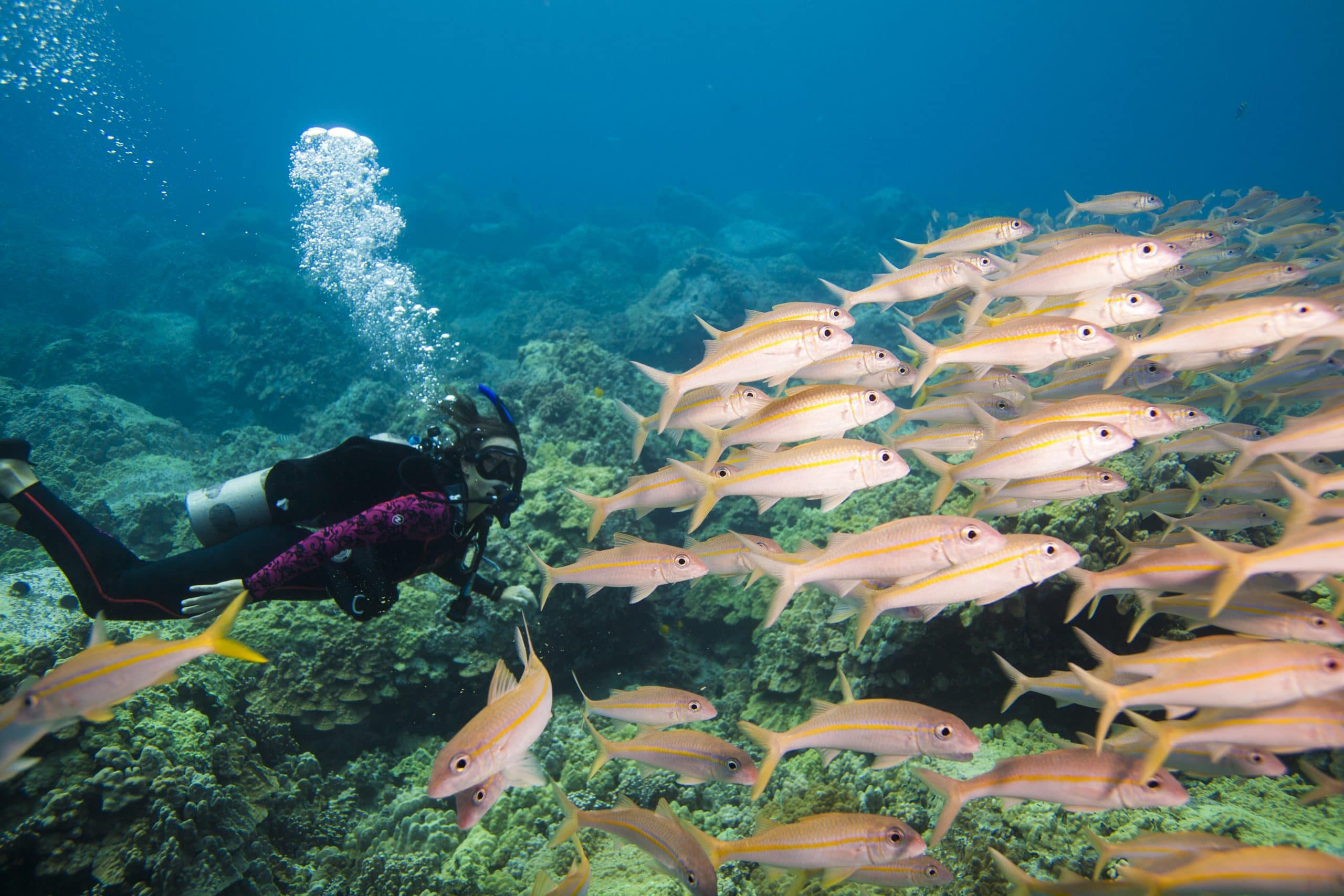
Photo Credit: PADI
- Great Barrier Reef, Queensland, Australia
Be delighted by one of Australia’s most beloved underwater gems—the Great Barrier Reef. Featuring a rainbow of colorful coral gardens and hundreds of tropical fish species, there is plenty to explore here. It is an ideal spot for groups that want varied experiences as tour operators can cater for those that want to snorkel, those that want to learn to dive and those that are already PADI certified. And when you’re not in the water you will get an enriching reef talk where the experts, who will take you though ways in which you can play a part in conserving the reef system.
- Sharks Bay, Sharm-El-Sheikh, Egypt
For those that don’t want to spend the whole day out on a boat but still want to have a memorable experience on the Red Sea, Sharks Bay in Sharm-El-Sheikh is a great option. With stunning house reefs and wrecks in a marine protected area, the colorful underwater experience is beloved by both those that snorkel or do a discover scuba through the area. The boat ride to the house reef is a short one and the memories will certainly last you a lifetime.
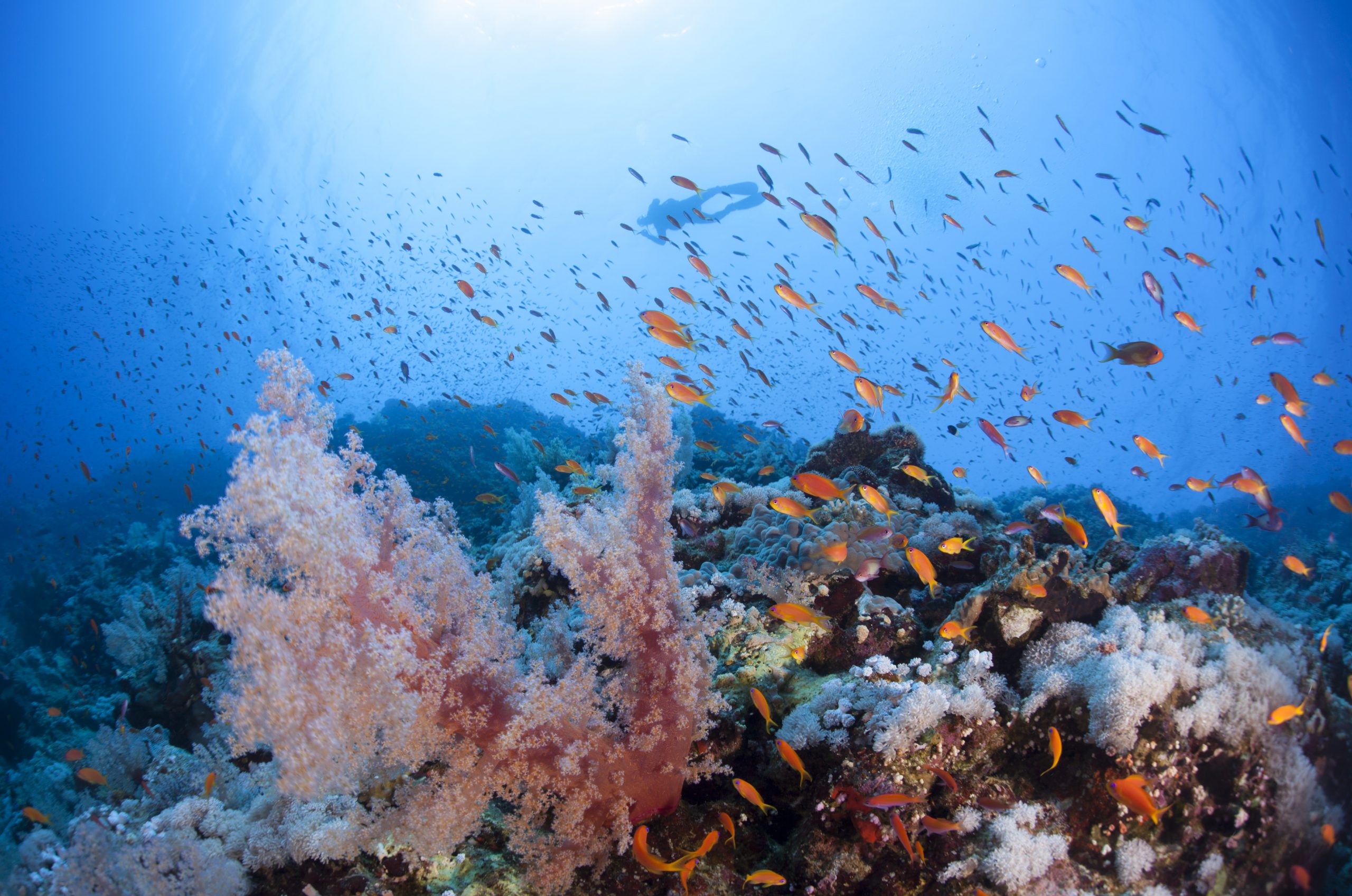
Photo Credit: PADI
- Poor Knights Island, Northland, New Zealand
Have the perfect day out at one of New Zealand’s first marine reserves. Dubbed by Jacques Cousteau as one of the top 10 dive sites in the world, Poor Knights Island offers something for everyone. You can easily spend hours swimming through the dense kelp forests and archways full of fish! And in between snorkels you can sign yourself up for a PADI Discover Scuba® Diving experience, where the chances are high you will encounter nudibranchs, long-tailed stingrays, devil rays, sea turtles and even an occasional orca!
- Stingray City, Grand Cayman, Cayman Islands
With unique marine life and spectacular underwater topography, Stingray City in Grand Cayman is a stunning spot to explore the ocean. It is famous for the large of stingrays that come through in search of a meal and offers water enthusiasts a special encounter with them. Those lucky enough may even get a kiss on the lips from these friendly sea creatures. Whether you are snorkeling or doing a discover scuba experience here, make sure you also have your camera in hand, as this spot is extremely photogenic and you’ll want a keepsake of you and your new underwater friends.
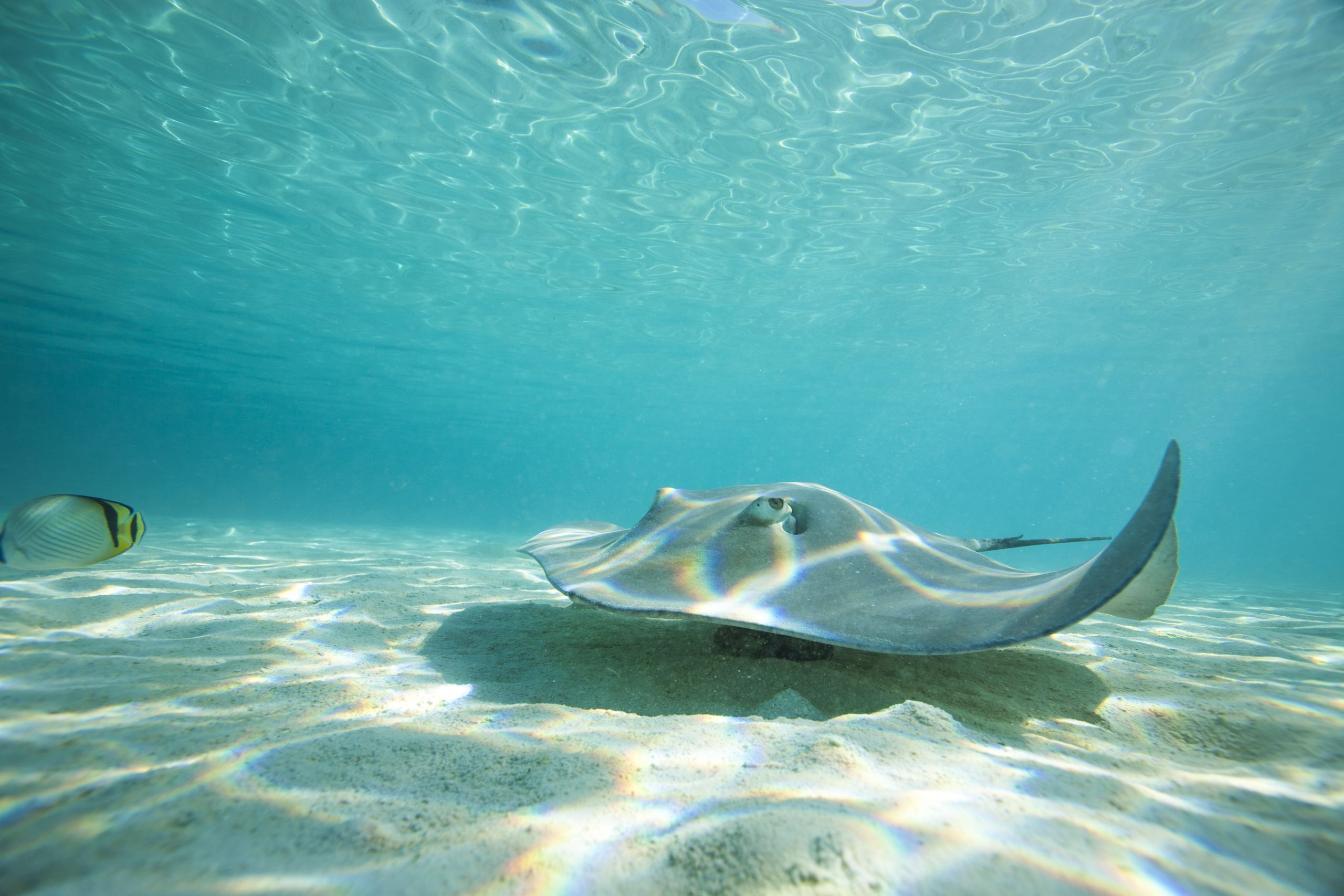
Photo Credit: PADI
- Great Astrolabe Reef, Kadavu, Fiji
One of the most intimate places to snorkel and also have your first diving experience is in the Great Astrolabe Reef. A few seconds underwater and you will quickly discover why Fiji is regarded as the soft coral capital of the world. It is a great spot to have your “Finding Nemo” moment and chances are high that you will also see manta rays and resident white tip reef sharks while you’re in the crystal-clear warm waters. With only small groups exploring the reef at a time, it is the perfect spot to have a special moment amidst the pristine nature.
- John Pennekamp Coral Reef State Park, Key Largo, Florida, USA
With this state fully re-open for business (at the time of writing), ditch the crowded amusement parks and beaches for Florida’s underwater park at the John Pennekamp Coral Reef State Park, which was the first of its kind in America! What makes this an equally great place to snorkel and learn to dive are the shallow waters that have an immense landscape for you to explore. You’ll see abundant sea life with over 650 types of fish, 40 types of living coral the famed 12-foot submerged statue of Jesus.
- The Blue Hole, Gozo, Malta
Whether you are snorkeling or diving for the first time in Malta, taking a giant stride into their blue hole is a must-do bucket list item. It’s no surprise this is a favorite spot amongst ocean lovers, as Jacques Cousteau rated this spot one of the best in all of Europe. Be amazed as you watch the natural light rays bounce off the beautiful reef—illuminating the unique topography of the area. For those that try a dive here, it will certainly set standards high for future dives to come!
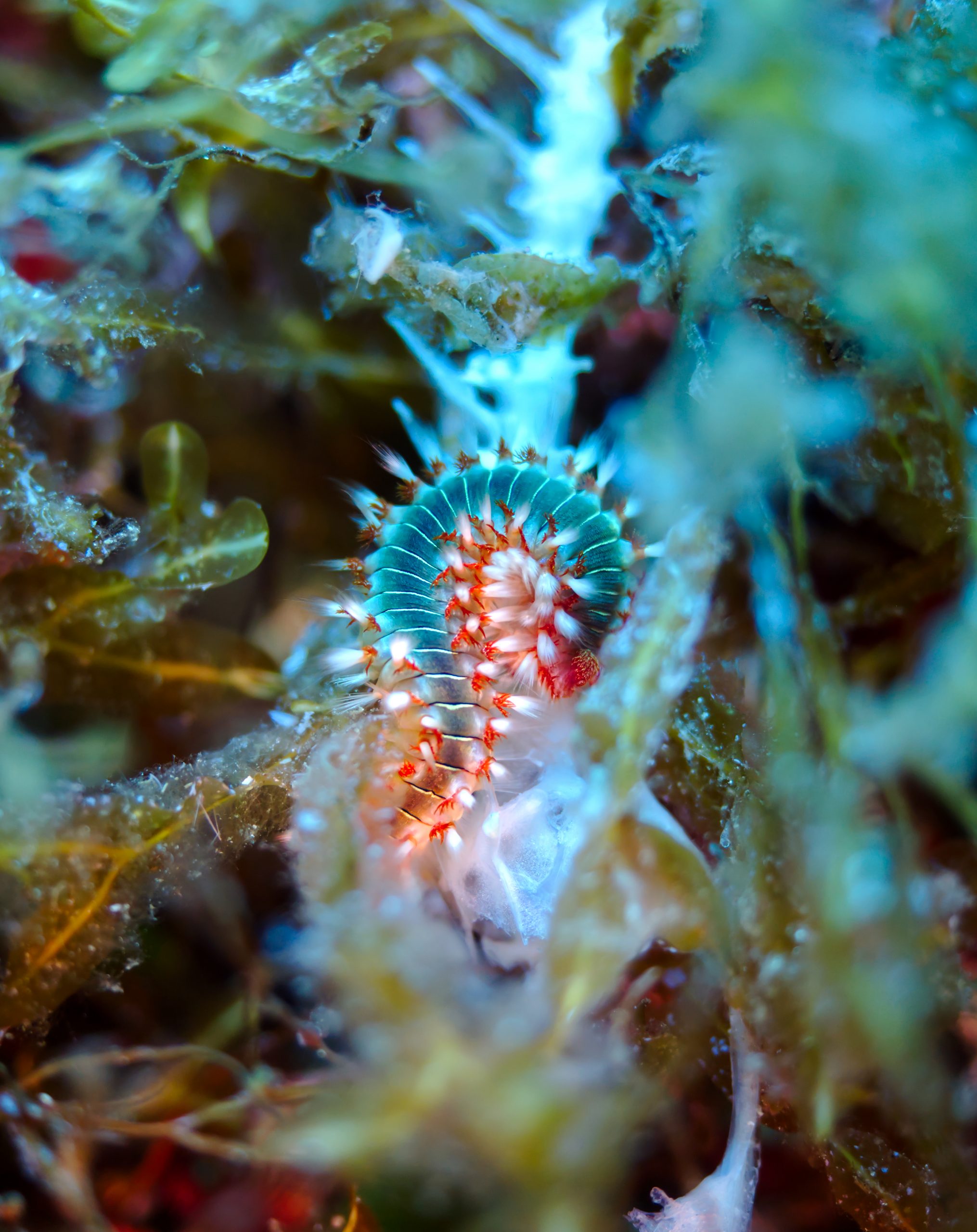
Photo Credit: Manuel Bustelo
- Robberg Nature Reserve, Plettenburg Bay, South Africa
What’s cooler than snorkeling with seals? Diving with them! Plettenburg Bay in the Western Cape is home to some of the friendliest seals who are keen to play all day long. Sign up to snorkel with them for the day during an ocean excursion or do a discover scuba experience— where you learn to dive in the pool first and then head to the ocean to find your furry friends! Either way, it is only a short boat ride out to find the seals, meaning you’ll have plenty of time to play with them in their natural habitat.
- Crag-y-Mor, Wales, United Kingdom
Explore the cooler (literally) places in Wales by going on an underwater snorkeling or diving adventure! There are both half-day snorkeling and diving trips that give you a new perspective of the coastline—where both seals and historical ruins are in abundance. While there are magical marine life encounters in these waters all year long, summer offers a chance to see the water sparkle from both moon and blue jellyfish. And if you’re lucky enough, you’ll swim passed walls that are covered in red sea squirts!
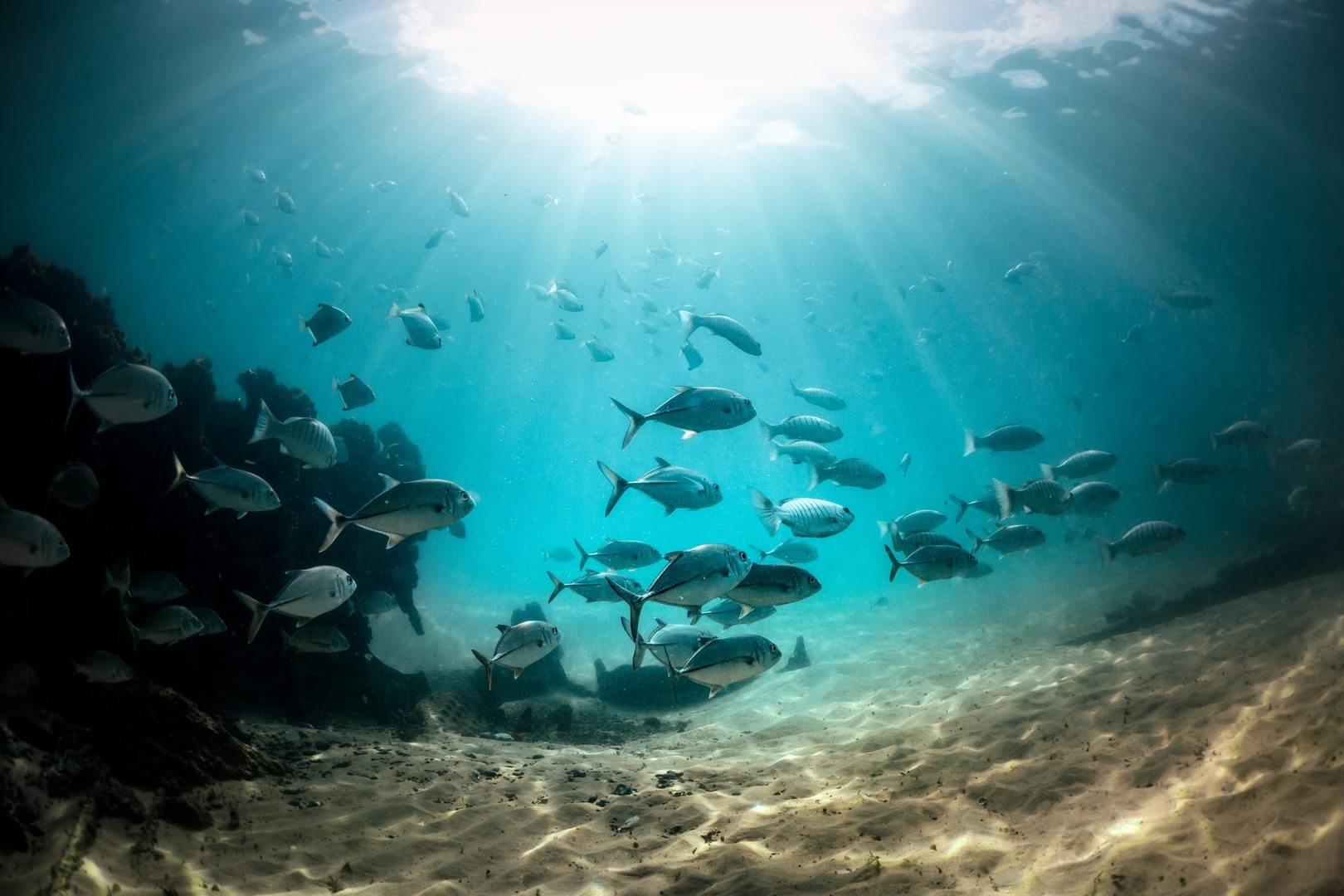
Photo Credit: PADI
 Ready to dive in? Visit padi.com or contact a PADI Dive Center or Resort to start planning your snorkel or scuba trip!
Ready to dive in? Visit padi.com or contact a PADI Dive Center or Resort to start planning your snorkel or scuba trip!
Blogs
Intro to Tech: What is it about?
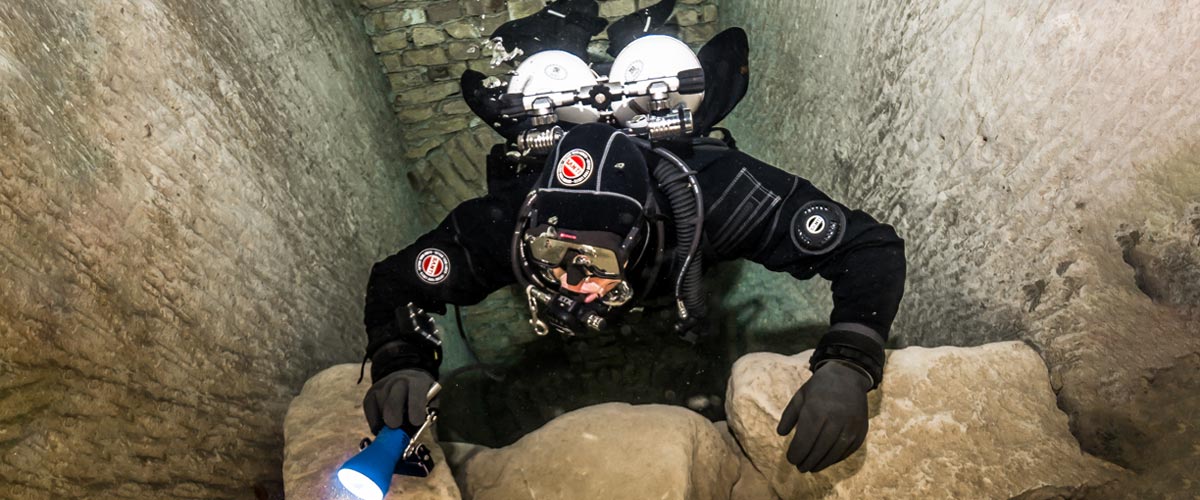
Article by José Pablo Mir
Pictures by Cezary Abramowski
The world of technical diving is exciting. It opens the door to new sites, depths, and bottom times. More importantly, it opens our minds to a new way of planning, facing, and experiencing dives, even those not purely technical.
Becoming a technical diver is a process, and like in other aspects of life, we should find the proper entry point that suits us best based on our knowledge and experience. The Introduction to Technical Diving course from TDI -the world’s largest and most recognized technical diving teaching organization- is the best option for divers who have yet to gain experience in the fundamental aspects of this new practice. The course’s content and its embrace of new techniques and technologies make it possible to acquire a solid foundation to learn and gain experience in this practice properly.
Becoming a technical diver is not something that happens overnight, whether deciding to become one or receiving a certification card stating we are now technical divers. It is a slow process extending farther away than any introductory course. It requires effort and dedication. But it will bring us satisfaction from day one -or two.
It is a matter of mentality
First, we must understand and accept that technical diving, involving greater depths, longer bottom times, exotic gases, virtual or real ceilings, and more, comes with higher levels of risk than the sport diving we have been practicing until now.
Although this discussion usually starts with a warning about risks, as I’ve done in the previous sentence, our practice is not a game of chance.
Technical diving is a rational activity that requires maturity and good judgment, and we will put everything into ensuring that each dive is a successful one -meaning we return from it safe and sound. With this understanding, we will strive to establish a mental attitude more aligned with our practice and its realities.
This new “technical diver” mindset we will develop will lead us to be more cautious in our executions, more analytical in our plans, more rational in our strategies, and more detailed in our procedures.
Experience will keep teaching us to know ourselves better, to keep our anxiety and other emotions under control, and to manage our impulses. Over time, our senses will sharpen, and we will be more attentive to the particulars of the situation we find ourselves in.
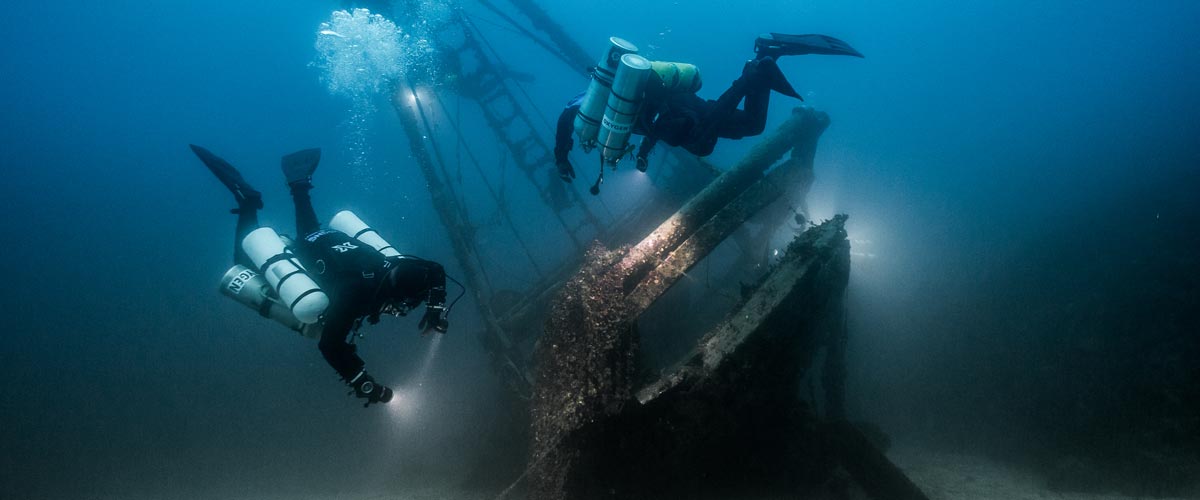
Strategies and procedures
Our strategies, those broad guiding lines tracing the path to follow, from how to approach planning to where, with what, and how we are willing to get there, will be more specific and more practical. Not because they magically become so, but because we will consciously and deliberately frame them that way.
We will establish clear, concise, and realistic procedures. Not only for the undesirable situations that may present themselves but also for those that are part of our dive objectives.
Even though, as technical divers, we often use equipment different from what we were previously accustomed to, it is essential to note that the gear does not make the diver. In a way, we could consider such equipment as the necessary tools to implement what our goal seeks to achieve, according to our strategies and procedures.
Technique plays an important role
We must put our greatest effort into learning and perfecting the different techniques we will be acquiring. Buoyancy, trim, propulsion, cylinder handling, deploying DSMBs and lift bags, valve drills, and more are essential skills we must begin to master to progress in our art. What we cannot do, when we need to do it, can harm us.
Our techniques must be effective and achieve the purpose for which they were devised. But they must also be efficient and require the least resources possible, including the time they take and the effort they demand. Effectiveness and efficiency will prevail over beauty and other considerations that may come to mind, although none of them should be mutually exclusive. A technique executed efficiently and effectively tends to have an inherent beauty.
Refining techniques is a lifelong mission. Some of them will be easy to master from the go; others, on the other hand, will be our life mission and will require many repetitions just to resemble the idea we have in mind of how they should be executed.
We must consider the environment
Our learning, the needs and musts of the practice we engage in, the experience we gradually gain, our strategies and procedures, and even our equipment and tools change with the environment.
Diving in the ocean, everything about us must be suitable for ocean dives. Conditions there rarely emulate those found in a pool, lake, or river. Variable winds and currents, greater depths, visibility conditions, other divers with uncertain skills around us, marine life, maritime traffic, distance from the coast, and many other factors add complexity and uncertainty.
It is never necessary to master the pool on the first day, but planning and aspiring to gradually cope with the ocean’s conditions is essential.
The cost of good training
We are aware that our resources are often scarce in relation to the possibilities of use we could give them if they were not. To a greater or lesser extent, we are part of the economic reality in which we are embedded.
Fortunately, the cost of good technical diver training is not an entry barrier. Comparing training and equipment costs, we see that the former are generally lower. Yes, lower cost for personalized service, essential to our future
performance and safety, than for a series of mass-produced products that are mere, albeit necessary, tools for an end.
The value of good training
The value of the training we received encompasses a range of characteristics, from emotional and methodological to technical and technological. TDI and its Introduction to Technical Diving course offer a deep and modern approach, with a teaching strategy that aims to create thinking divers, not merely obedient ones.
As technical divers, our knowledge is our primary tool. In this type of activity, what we don’t know can harm us.
Is this course optional?
Unfortunately, the fact that this Introduction to Technical Diving course is not a prerequisite for any subsequent training is an invitation to consider it optional. And we all know what usually happens to “optional” under budget constraints.
However, this course should be seen as optional only by those divers who are somehow familiar with the use of technical equipment, who have a mindset more in line with the requirements of this type of diving, who plan and execute the dives the proper “technical” way, who know their gas consumption rate, who are not intimidated by non-decompression tables, who feel comfortable using their dive computers, and know the techniques and have at least an acceptable level of buoyancy, positioning, and propulsion. Those can go straight to a more advanced training course, such as TDI’s Advanced Nitrox.
We must ask ourselves whether or not we are in that group.
Remember our goal: to have fun
Recreational diving is our passion. Jumping into the water carrying heavy equipment and having properly dotted our I’s and crossed our T’s have only one ultimate goal: fun. This is the activity we have chosen as a hobby. We must enjoy it; it must give us pleasure and make us vibrate.
Having a good time is not optional!
Blogs
Four opportunities to go pro in 2024 with Dive Friends Bonaire
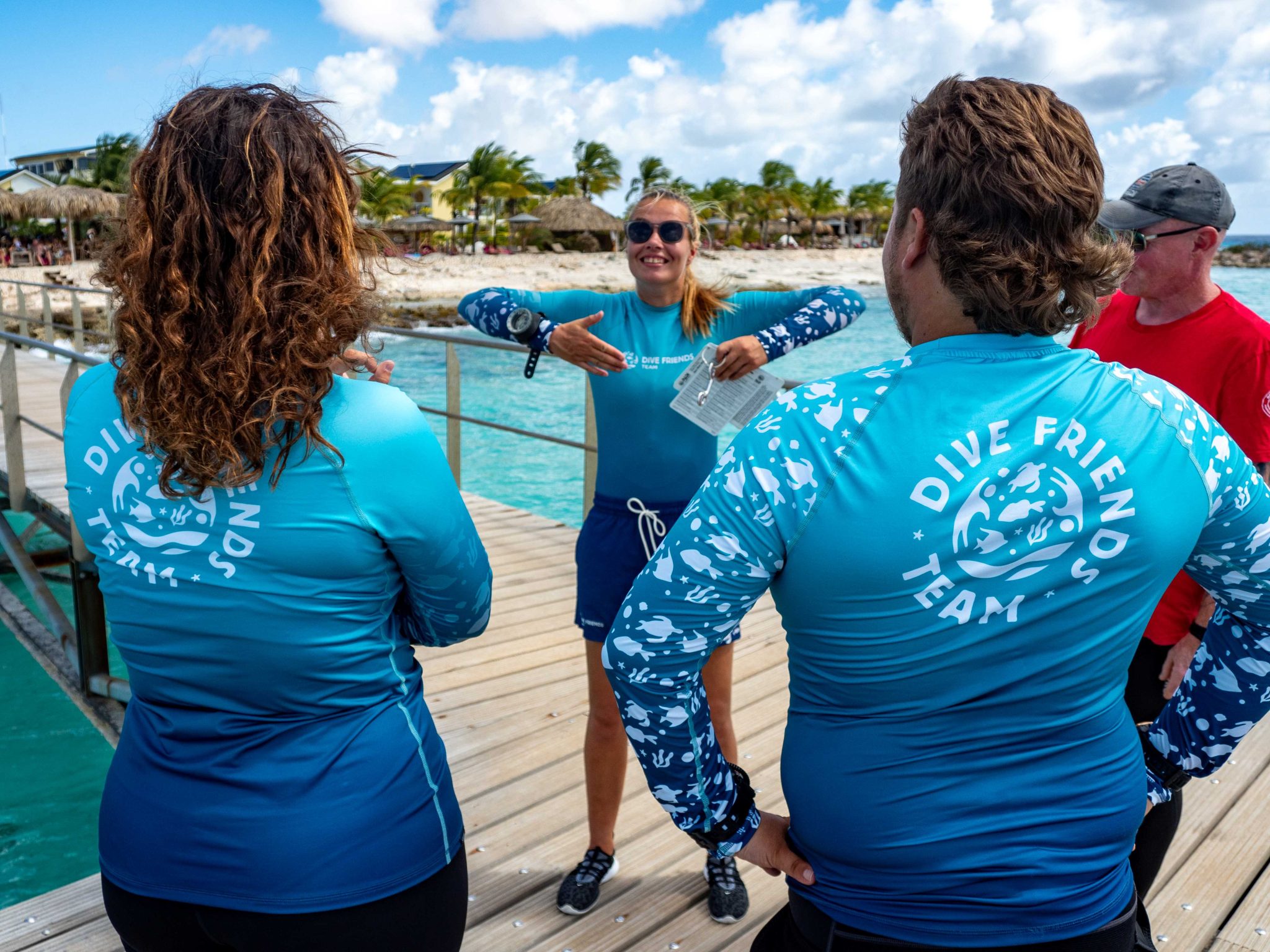
Dive Friends teaches the Instructor Development Course (IDC) several times a year to students who are eager to share their passion for diving with the world.
Dive Friends is known for the personal approach throughout the course. Their in-house course director will lead the students through every essential step, mentoring them to achieve their fullest potential as a dive instructor.
Applications for the following IDC start dates are now open:
- 12 April
- 5 July,
- 20 September
- 29 November
Partnership with Casita Palma
If the student opts for the IDC-Deluxe or IDC-Supreme package, their accommodation will be arranged for them at Casita Palma. This small and quiet resort is within walking distance from Dive Friends Bonaire’s main dive shop location and has everything you need to relax after an intense day of IDC training. Breakfast is included, so the student will always be fuelled and ready for their day.
Contact Dive Friends Bonaire’s Course Director Eddy for more information: coursedirector@divefriendsbonaire.com.
-

 News3 months ago
News3 months agoHone your underwater photography skills with Alphamarine Photography at Red Sea Diving Safari in March
-

 News2 months ago
News2 months agoCapturing Critters in Lembeh Underwater Photography Workshop 2024: Event Roundup
-

 Marine Life & Conservation Blogs2 months ago
Marine Life & Conservation Blogs2 months agoCreature Feature: Swell Sharks
-

 Blogs2 months ago
Blogs2 months agoMurex Resorts: Passport to Paradise!
-

 Blogs2 months ago
Blogs2 months agoDiver Discovering Whale Skeletons Beneath Ice Judged World’s Best Underwater Photograph
-

 Gear News3 months ago
Gear News3 months agoBare X-Mission Drysuit: Ideal for Both Technical and Recreational Divers
-

 Gear Reviews2 months ago
Gear Reviews2 months agoGear Review: Oceanic+ Dive Housing for iPhone
-

 Marine Life & Conservation2 months ago
Marine Life & Conservation2 months agoSave the Manatee Club launches brand new webcams at Silver Springs State Park, Florida









